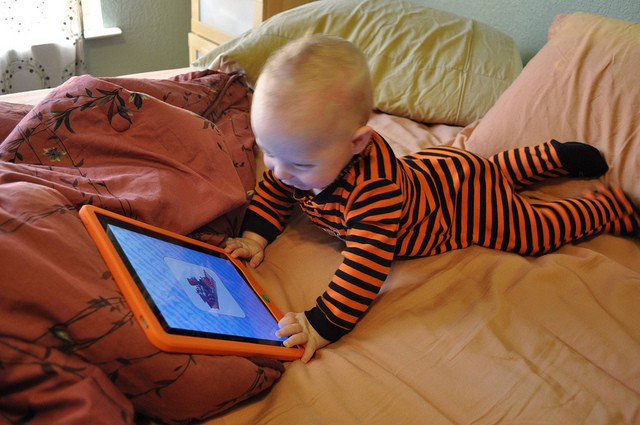When President Obama gave his annual State of the Union speech Tuesday night, he dedicated a significant portion of it to the dismal state of America’s education system.
Some educational experts responded by noting that that mobile devices such as the iPhone and iPad could potentially improve the American education system’s “productivity.”
I wonder whether this is a valid point, or yet another manifestation of Americans’ infatuation with technology.
For example, child development expert Dr. Michael H.Levine of the Joan Ganz Cooney Center said in a recent column in The Huffington Post.
As President Obama discusses our State of the Union with a much needed focus on innovation, education and investment in America’s future, let’s focus on one area that is ripe for radical change: how digital media can be used for education and hands-on, lifelong learning beginning right from the start.
The Joan Ganz Cooney Center’s study that Levine refers to in the column is thought provoking for many reasons. One of the primary conundrums presented by the report is that it says that parents tend to hand over their iPod or iTouch to distract their child.
They most commonly give the their kid a gadget when the kid is in the backseat of the car, or while they’re queuing up for something.
But the same report “Learning: Is there an app for that?” notes that parent engagement is very important for the child if they’re going to use digital media.
“Parents are teachers: Parents extend and elaborate on the relevant information that is communicated. This can provide extra motivation for children to keep at it,” it says.
I’m not sure how parents can engage their kids in mobile educational experiences while driving.
I just note this discrepancy because Levine posits in his column that mobile digital media is crucial to the future of education, and could provide some sort of breakthrough in helping American children bridge that education gap.
Perhaps the explosion of kids’ apps on the iOS can be extra beneficial. But Levine’s thesis that it can provide constant, on-the-go educational experiences, and that this emerging phenomenon is crucial to the future of education just strikes me as far-fetched.
My question: Why does it matter whether some educational experience is a book or an iPhone app if all of those experiences require parental, or some sort of adult guidance?


